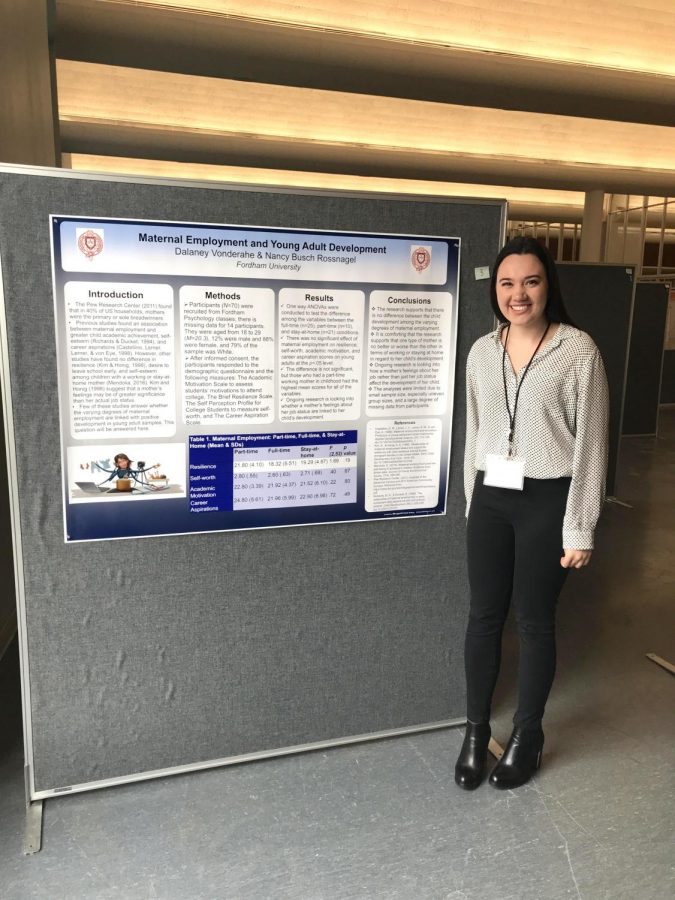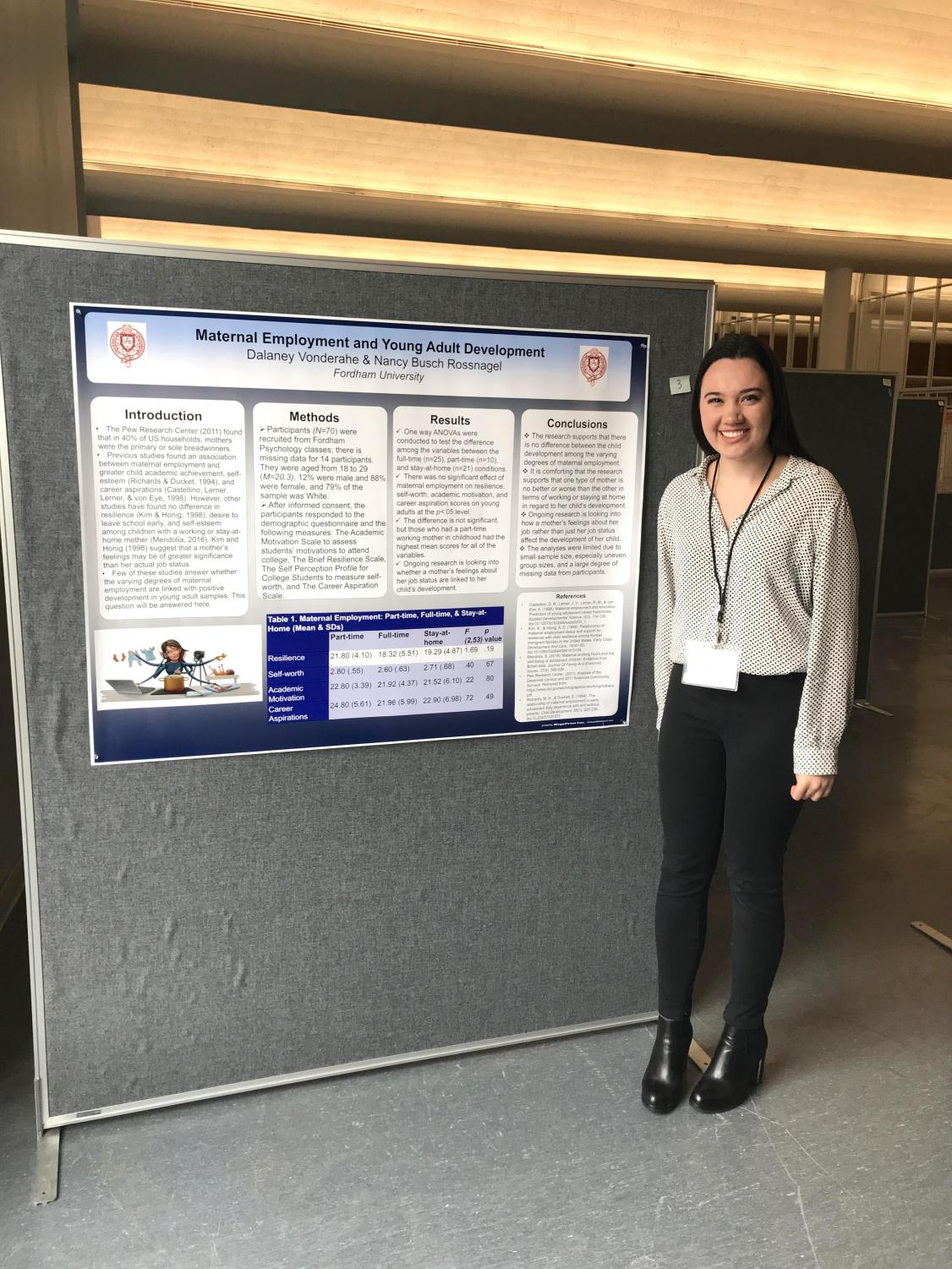Fordham Alumna Researches Effects of Working Mothers

Fordham Alumna Researches Effects of Working Mothers
Dalaney Vonderahe presented her research project about the effects of working versus stay-at-home mothers on child development. (Courtesy of Dalaney Vonderahe)
Dalaney Vonderahe presented her research project about the effects of working versus stay-at-home mothers on child development. (Courtesy of Dalaney Vonderahe)
Hang on for a minute...we're trying to find some more stories you might like.
Email This Story
By Sarah Huffman
Fordham alumna, Dalaney Vonderahe, FCRH ’18, received the Fordham research grant to research whether a difference exists between children of part-time working, full-time working and stay-at-home mothers.
The specific factors Vonderahe looked at were resilience, self-worth, career aspirations and academic motivation in young adulthood. She hypothesized that young adults who had a part-time working mother throughout their childhoods would have the highest scores for these variables.
She measured the variables with the brief resilience scale, the self-perception profile for college students, the career aspiration scale and the academic motivation scale. She said she also made an online survey that had all of these measures and a demographic scale.
Vonderahe said she conducted further research that looked into whether a mother’s feelings concerning her role would be associated with the scores on these measures. She hypothesized that mothers with positive feelings about their roles would correlate with higher scores on the scales she was testing.
Her first study found that there was no significant difference in resilience, self-worth, career aspirations or academic motivation in young adult offspring of mothers who worked full-time, part-time or stayed at home.
However, those who had part-time working mothers had the highest scores of all the conditions. She said her second study regarding a mother’s feelings about her role also found no differences.
Vonderahe said she came up with the idea because during college she was surrounded by career driven women who often spoke about their families and motherhood. She said she is interested in developmental psychology and she wanted to research a relevant topic.
“I feel that mothers are still judged concerning their choices to stay at home or work full or part-time,” said Vonderahe. “For the most part, I feel that mothers want to do what is best for their children and these judgments are not coming from scientific research but rather opinion. I wanted to provide some scientific answers to these criticisms.”
Vonderahe’s research sheds light on the debate of whether a mother should work or stay at home and it supports that one type of mother is no better or worse for child development than the other in terms of working or staying at home.
“This is especially comforting, given that many women do not have the choice concerning whether they can work or stay at home,” said Vonderahe. “I think it is important to conduct research like this because it can debunk these criticisms that women are up against.”
She said her research is retrospective because it asks young adults about their childhood, rather than just studying children like previous research she examined.
Vonderahe said her research experience at Fordham was very positive and she learned a lot.
Her direct mentor was Busch Rossnagel, Ph.D. She said Rossnagel was a wonderful guide throughout the process and that she was supportive but also challenging.
She also said Dean Annunziato was also extremely supportive and gave her the foundation to complete a thesis and apply for a research grant. She said Dean Annunziato’s confidence in her helped her to pursue her research goals.
“I learned so much and was very focused on it [the project] even though it was hard to juggle amidst all of my classes,” she said. “I think it was easy to stay so focused on the project because I was very interested in the results and had a mentor who was also interested.”
Vonderahe said she ultimately wants people to take away the idea that her research supports that one type of mother (working or not) is no better or worse than another in regard to her child’s development.
Vonderahe thinks people should stop criticizing mothers based on their choices to stay home or work. She said a lot of the research that prefers one type of mother is conflicting and dated.
She also mentioned that even though her second study examining a mother’s feelings about her role did not have any significant findings, past literature on a similar topic found that a mother’s happiness about working or staying at home is positively correlated with her child’s development.
“I think that this is a better way to look at the work or stay at home debate,” said Vonderahe.









If you want a picture to show with your comment, go get a gravatar.